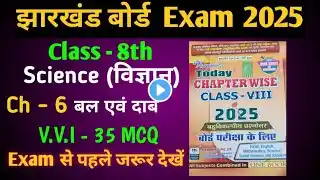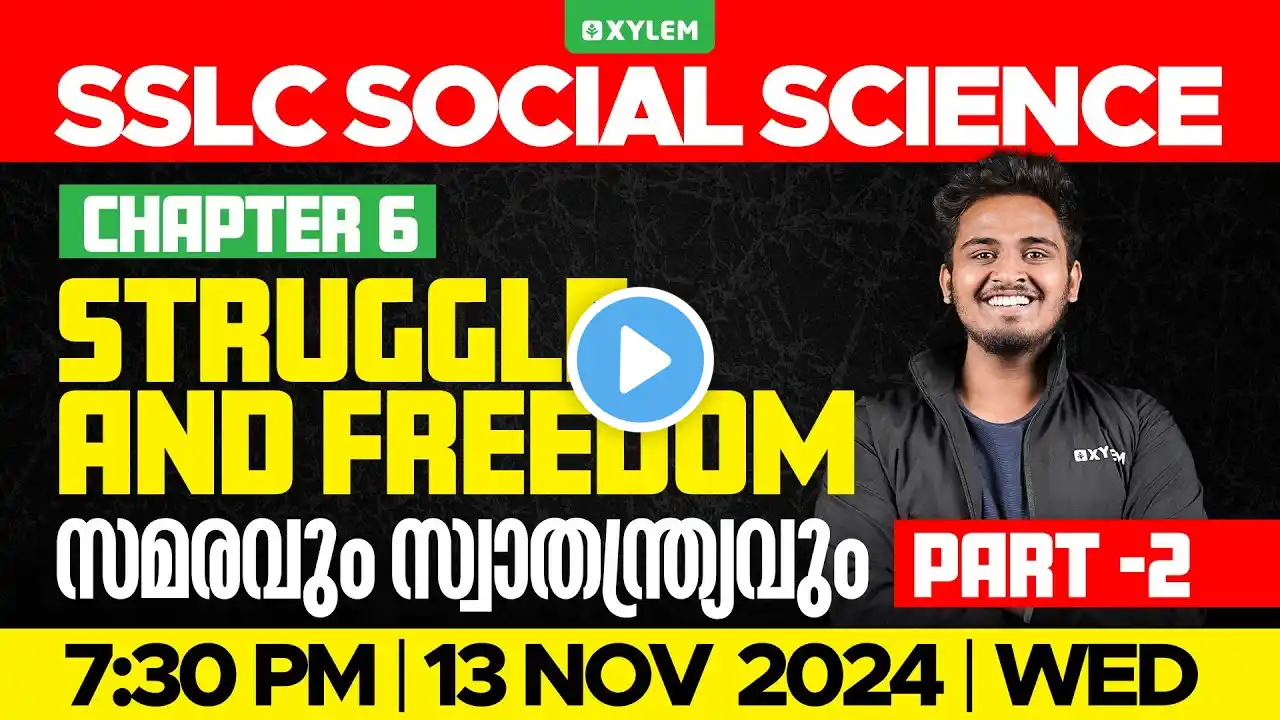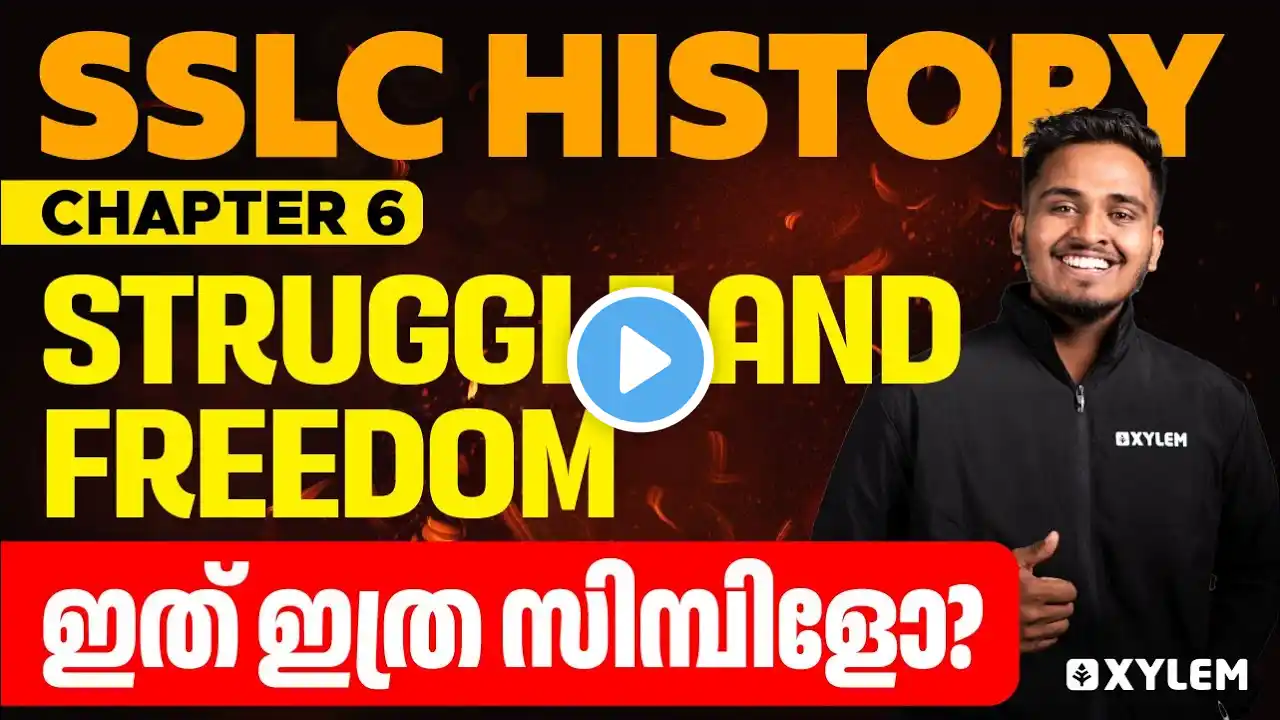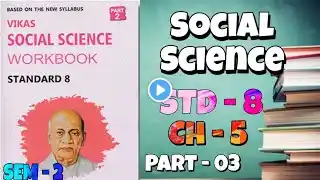
Freedom Movements | Ch 6 | Std 8 | Social Science | Workbook Solution | Sem 2
Std 8 S S | Chapter 6 Freedom Movements | Vikas Social Science Workbook Solution | English Medium Chapter 6 Freedom Movements In this chapter, students will learn 1. Will become familiar with the definition of Nationalism and the main factors that are responsible for the thoughts of nationalism. 2. Will gain information about the revolutionary activities that took place in India and abroad, along with information about revolutionaries. 3. Will gain insights into Gandhiji as an advocate of non-violence and his non-violent satyagrahas. 4. Will are introduced to the work done by leaders of the freedom struggle. 5. Will understand the life of Subhash Chandra Bose and his career. 6. Will rejoice on seeing Mother India free from the shackles of slavery and proudly wearing the crown of independence. Nationalism is the spirit of being ready to sacrifice body, mind and wealth for the nation. Nationalism means a sense of unity and pride for one's nation. Nationalism is the expression of the people living in a certain part of the world who consider themselves united with their heritage and culture and express it emotionally, as this is my country. There is a sense of geographical, cultural similarity in a sublime spirit. When people of a nation realize that they are one, their interests are one, the spirit of national unity arises in them. *After the British Company brought the country under its rule, it established uniform law and administration in the country. In this way, the seeds of national unity were sown unknowingly among Indians by the British rule. As a result of the policy of economic exploitation of the British government, the peasants were ruined and artisans became unemployed when industries collapsed. Thus, economic dissatisfaction and a sense of injustice united the people against the British. As a result of English education, a small but powerful class of intellectuals emerged in India. Western education instilled a longing for self-governance and independence in them. Archaeological research was carried out in India during the British rule. Ancient Indian texts were translated into foreign languages and with this the glory of India's past was revealed to the world. This glorious heritage played a vital role in the development of the ideology of nationalism. Several events like injustice done to Indians in chartered jobs, Lytton's Vernacular Press Act curtailing the freedom of the press and the Indian Arms Act promoted national unity. Retired English officer Allan Octavian Hume (A. O. Hume) contributed significantly to the establishment of the Hindi Rashtriya Mahasabha (Congress). About 72 delegates attended the first session of the Hindi Rashtriya Mahasabha. In 1905 AD, Viceroy Curzon partitioned Bengal under pretext of administrative ease as part of his 'Divide and Rule' policy. Revolutionary activities were first started in India by Vasudev Balwant Phadke. Money was needed for revolutionary activities and to purchase weapons. So the English treasury was looted in the Kakori train robbery. Revolutionaries like Ramprasad 'Bismil', Ashfaq Ullah Khan, Roshan Singh, Rajendra Prasad, Chandrashekhar Azad, etc. took part in the robbery plan. Madam Bhikhaiji Rustom Kama started a newspaper 'Vandemataram' in Paris (Europe) in 1902 AD. The Bardoli satyagraha was successful under the valiant leadership of Vallabhbhai Patel. After the successful management of this satyagraha, Vallabhbhai Patel became famous as 'Sardar'. In remembrance of this day, the Indian Constitution was implemented on 26th January 1950, and decided to celebrate this day as 'Republic Day' all over India. According to the Indian Independence Act. India was divided into two parts, India and Pakistan. On 15th August Revolutionary 1947, India became independent country. #socialscience #englishmedium #std8 #workbooksolution #std_8_samajik_vigyan #workbook #vikasworkbooksolution #workbookanswers #class8 #std8socialscience #class8th #chapter6 #britishrule #india #britishruleinindia #freedommovement #freedom #subhaschandrabose #nationalism #independence #divideandrule #tricolor #hinduism #hindurashtra #congress vikas social science workbook Standard 8 S S Standard 8 social science social science social science workbook workbook social science Std 8 S S ch 6 Chapter 6 Freedom Movements BRITISH PERIOD BRITISH RULE Vikas Social Science Workbook Solution English Medium


















